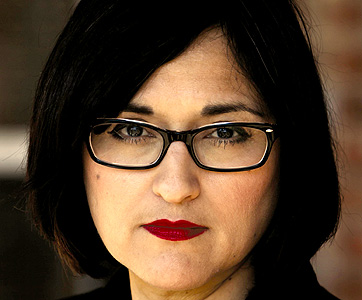 My friend asked the question during a conversation about my mother, who has Alzheimer’s: What about a nursing home? She asked because I was on my way to El Paso to relieve my sister for two weeks. My sister works fulltime but she is in charge of scheduling Mom’s care. She ferries Mom to doctor and dentist appointments, and back and forth between their homes. It’s a tough job. Which is why periodically I step in to help.
My friend asked the question during a conversation about my mother, who has Alzheimer’s: What about a nursing home? She asked because I was on my way to El Paso to relieve my sister for two weeks. My sister works fulltime but she is in charge of scheduling Mom’s care. She ferries Mom to doctor and dentist appointments, and back and forth between their homes. It’s a tough job. Which is why periodically I step in to help.
I gave my friend the standard answer: It’s not an option now for two reasons. One, my mother’s dementia doesn’t yet warrant residential care. And two, because she is far below the poverty level guidelines, I worry about the residential care available to her.
Harder to explain, however, is the cultural taboo I keep running into when I think “residential care.” It’s a wall of intertwined cultures that I cannot circumvent, and with which I grapple privately.
I’m an American of Mexican descent, born into a family still living largely in Juárez and El Paso. The foundation of my upbringing was two-fold: to be respectful and of service. Especially to our elders. Tías, tíos, abuelas, abuelos – all merited my respect simply because they were older than me. We did not dream of talking back to them, of entering their homes without a proper greeting. We cared for our elderly at home. They died at home. I remember holding the rosario for my grandmother in her living room in Juárez, ataúd, candles, flowers and all.
Yes, that was a different time, an era of multigenerational families living, if not under one roof, at least in the same neighborhood. Even the international border was something we could cross at a moment’s notice as needed, al sur or al norte. We never lacked someone to sit with a housebound loved one. We did it out of duty and love.
But I was born in the U.S., and I drank from the American Dream Kool-Aid: You can be anything you want to be, do anything you want to do! There’s a lot of good in that dream; it contributes to our country’s greatness, our global leadership in science, medicine, technology. But our society has distorted the dream so that we often seek self-fulfillment at the cost of anything and everyone else. Additionally, we are a youth-venerating society increasingly uncomfortable with anything reminding us of old age or mortality. This makes it easy for us to immediately jump to the nursing home answer when faced with sick or elderly family members.
The American in me fails miserably sometimes in the service to my mother. I sometimes wish there were a different way to care for her – one that doesn’t cost me work time and wages to be with her, one that doesn’t involve laying my own wants aside for her needs. The Mexican in me says, “Remember where you come from. She’s your mother, an elder. Familia is about stepping up to the plate – now do it.”
The friends who bring up the nursing home option are good, family-oriented people. They are seeing kids through school, paying college tuition. They are fulfilled by laying aside their own dreams for their children, by trying to shape good adult human beings. And they are better people for it.
If only they could view my journey through the child-rearing prism they know so well. It might help them understand the place where I come from. Maybe there is something I am meant to learn by temporarily laying aside my own wants in order to care for my mother. Who is to say that this isn’t going to shape my soul into what it was meant to be? Perhaps self-fulfillment at this point in my life will come at least partly from the time I spend in service to my mother.
www.mymothersbrain.wordpress.com
Beatriz Terrazas has worked in the Dallas area for more than 20 years, first at the Fort Worth Star-Telegram, then at The Dallas Morning News. Her work has won first place in contests sponsored by the National Association for Hispanic Journalists, the American Association of Sunday and Feature Editors, the Society of American Travel Writers. In 1994 she was part of a team at The Dallas Morning News who won the Pulitzer Prize for a project on violence against women. She is a Nieman Fellow, Harvard University, class of 1999.
Beatriz has been an independent writer and photographer since 2006, and her work has been published in The Washington Post, The Dallas Morning News, Heal, Cure and Skirt! magazines.

Recent Comments